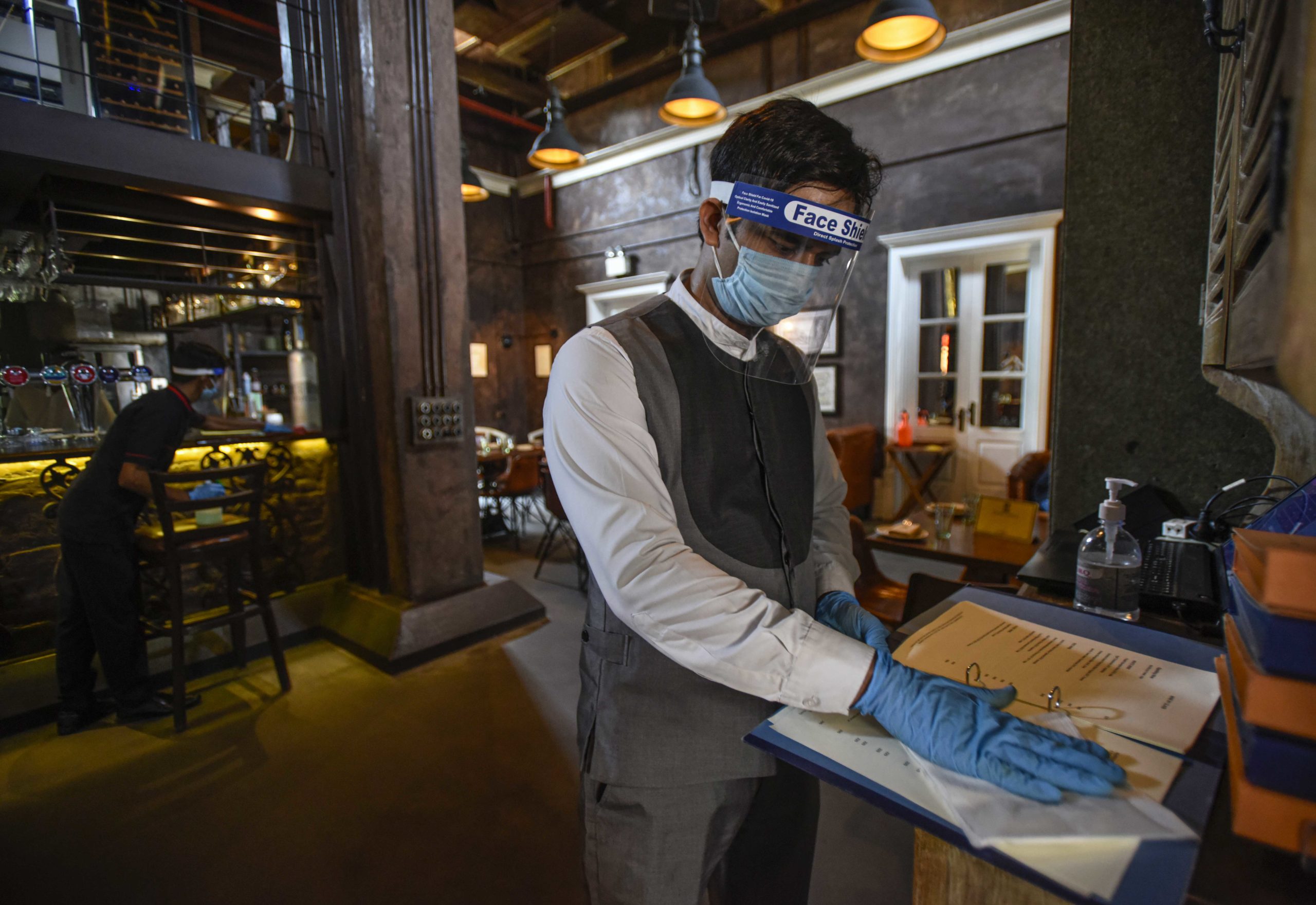With businesses being affected amid lockdown since last year, capital city’s financial crisis is far from over
A year since the Covid pandemic pushed the country into a lockdown, its revenue is slowly recovering. The capital city which was met with lakhs of migrants wanting to return home was also affected acutely by its earnings as businesses were forced to close down and commercial activity came to a halt.
In fact, things were so bad that Delhi received Rs 5,854 crores under the central government’s GST borrowing scheme. This was informed by Minister of State, Finance, Anurag Thakur to a question in the Lok Sabha by MP Mimi Chakraborty on the GST debt on states. Thakur said that in the “wake of Covid-19 pandemic the GST collection as well as GST compensation cess collection declined sharply in FY 2020-21, due to which GST compensation requirement to all States/UTs increased.”
In total, till March 3 of this year the Centre has released Rs 1,06,104 crores to the States/UTs.
For Delhi, records provided online show a glimpse of how bad things got during the lockdown which came into effect on March 23 of last year. Only in June were restaurants allowed to open their doors to dining in; the food industry suffered huge losses during the lockdown – but even after this, it failed to look up. Some semblance of normalcy was also brought in with night curfew removed effectively from July 31. By mid-August, restaurants and hotels were allowed to start serving alcohol.
According to the ‘financial position statement of govt. of NCT of Delhi’, till July 2020 the State Goods and services Tax collected were Rs 3,810 crores (381055.54 lakhs). This was hugely different from the previous year where till July it was able to collect Rs 5,874 crores (587467.04 lakhs) giving it a difference or loss of Rs 2,064 crores (206411.50 lakhs).
State excise was also acutely affected – and liquor stores were forced to shut down as they didn’t account for being an essential service – earning Rs 907 crores (90791.72 lakhs) till July of 2020, whereas the previous year till the same month it had earnt Rs 1,540 crores (154036.16).
Sales tax was down too with earnings of Rs 710 crores (71076.20), whereas in 2019 it was Rs 1,656 crores (165687.42) till July, a difference of almost a thousand crores.
Now a year on, people are still suffering from unemployment, with the Centre for Monitoring Indian Economy (CMIE) projecting the urban unemployment rate at 7.3% as on March 24, 2021. Delhi’s unemployment rate was 8% in February, comparatively during the lockdown it had reached a whopping 42.3% in May of 2020.
As we move forward, things are getting better. This is reflected in the earnings of the government which in January, had collected a total GST revenue of Rs 2015.18 crore in January. The SGST accounted for Rs 922.18 crore, the highest for the entire financial year of 2020-21. The SGST recorded for the month of December 2020 was Rs 876.45 crore. According to the state government the January earnings saw a 15% increase over the past three months from October- December 2020.
Udit Bhasin Co-Owner of OTB Courtyard CP says they have seen the worst times in the hospitality industry. “Restaurants were shut for six months. And they were opened again with several restrictions and time lines. Earlier it started off with shut down hours at 8pm, then 10pm which made it tough for the business.”

Now, things are looking up. Udit Bagga Co-owner of OTB says people’s fears have been assuaged, and the government’s easing of Covid restrictions is helping. “People are relatively less scared of eating and drinking out. Also, since the opening hours have been pushed to late night, it has helped us keep the restaurants open for longer and make more sales. People have accepted that Covid is our new reality and they’ve started to live with it. That is the reason that we are seeing an increase in footfall these days.”
The government’s next step to focus on boosting its revenue is through liquor sales, and restaurants like OTB see its benefits. The AAP-led government has done what many have debated in the past: lowering the drinking age to 21 from the previously 25 years. Bagga says, “It is a great decision made by the Delhi Government. Since Covid, they’ve been really supportive in helping the hospitality industry to get back on its feet. By reducing the drinking age, they’ve increased our consumer size and also the sales.”
“It will definitely help in recovering the business because post Covid, youngsters are keener to move out and socialise right now, so that is helping us. We’re hoping for the cases to go down again soon because that will again affect the sales. As soon the numbers increase, people will be cautious to move out again and we do not want that. It has taken a long time for the industry to find their grounds again and we’re still sitting on shaking lands. We cannot afford another collapse right now.”
The government has also in its new excise policy said it will not run any liquor shops, and there won’t be any new liquor shops which will be opened. Deputy chief minister Manish Sisodia said “Government will ensure equitable distribution of liquor shops so that liquor mafia are thrown out of the trade. A revenue growth of 20 per cent is estimated after the reforms in the excise department”.
This is a complete full circle for the liquor shops which had been shut down and for the state which was stumped on revenue.
But even as businesses rejoice in things coming closer to how it was before Covid, the positive numbers in Delhi are rising. Just as going out is starting to become all too normal the Delhi government announced that cinema halls, shopping malls, metros and religious places as ‘super-spreaders’ on March 24. This is because a day earlier Delhi witnessed its biggest spike in daily positive cases this year with 1,101 registered.
It has now trumped this with 1,254 positive cases on March 24. Thus, it seems the path to recovery from the economic crisis is riddled with potholes, and one cannot predict the arrival of a better tomorrow as of yet.
(Cover: A waiter wearing gloves, face mask and shield at Town Hall restaurant as lockdown restrictions ease at Khan Market on June 9, 2020 in New Delhi, India // Photo: Getty Images)





